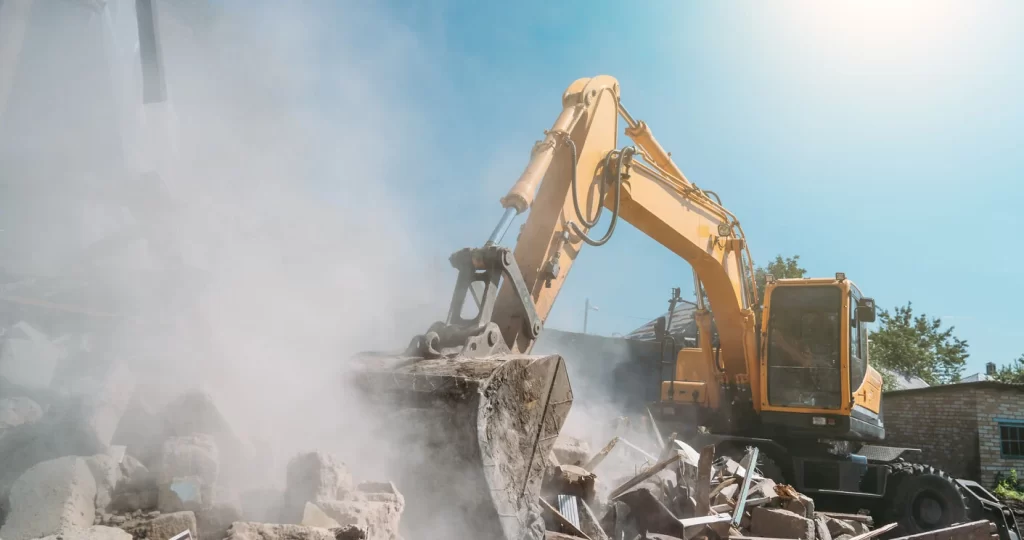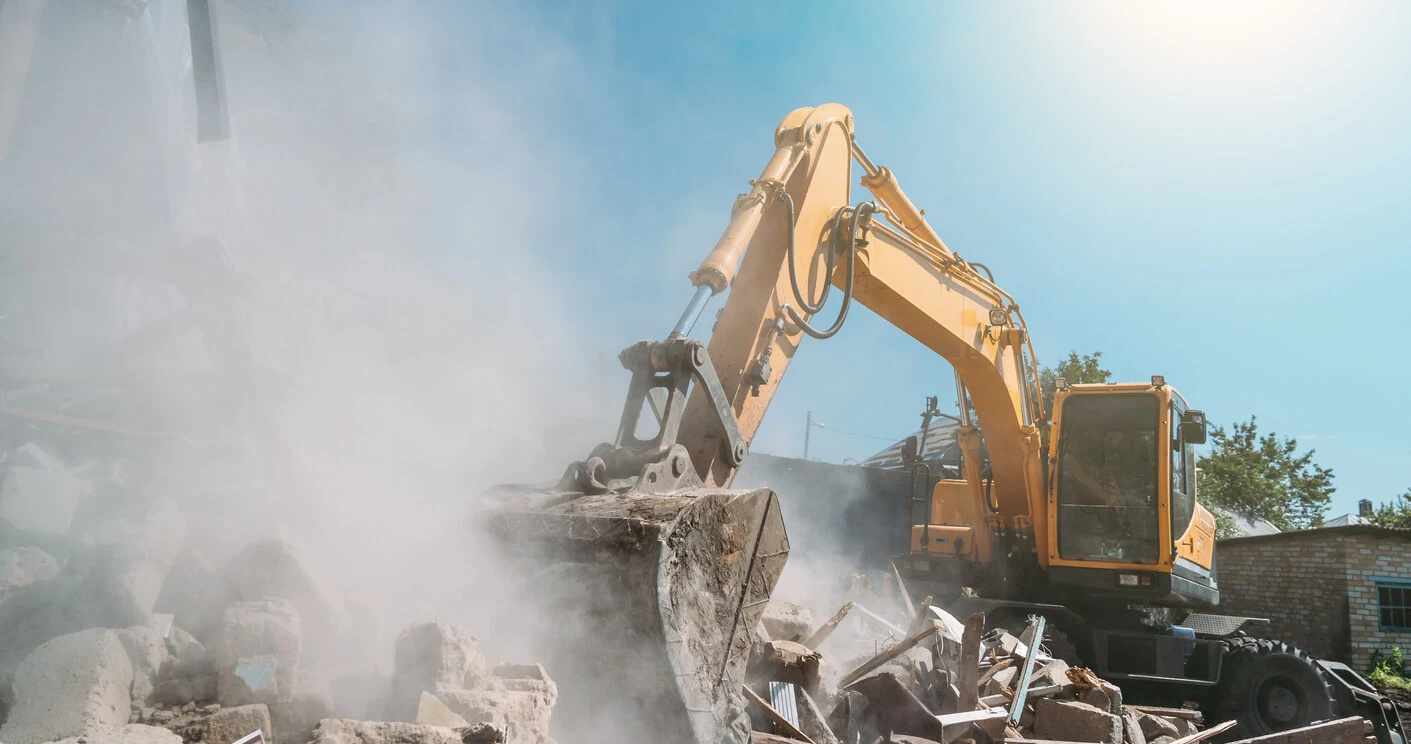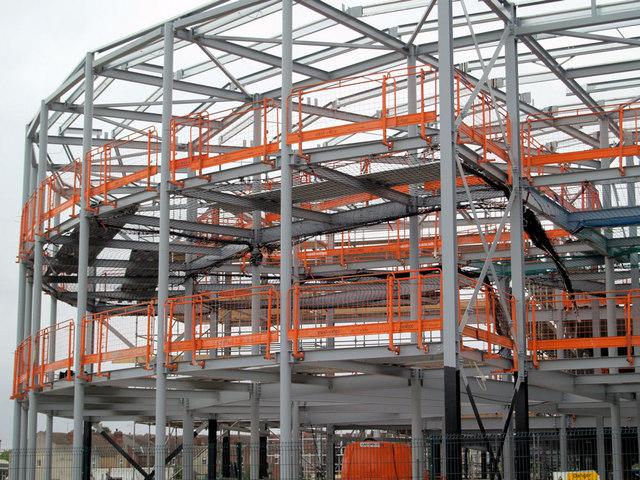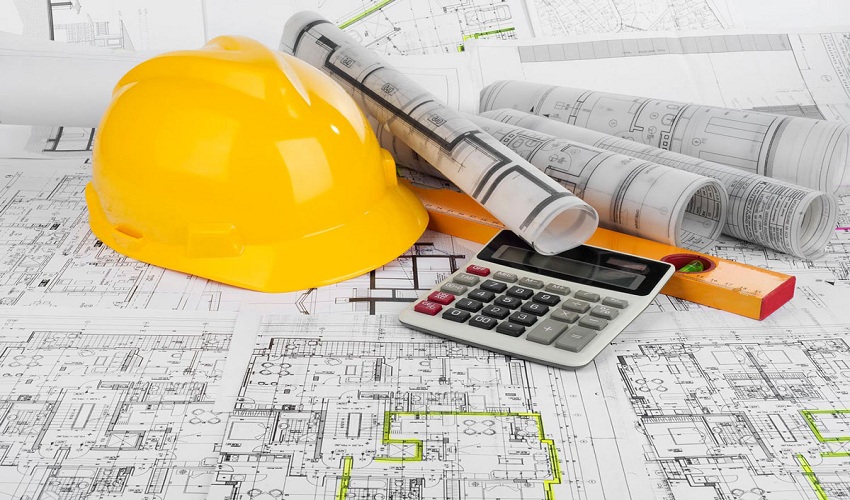Demolition projects generate considerable waste—rubble, concrete, metal, wood, and more—all of which needs proper disposal. Effective waste removal following a demolition project isn’t just about clearing debris; it’s about responsible, efficient, and eco-friendly practices that make room for your next construction phase or site renovation.
As experienced demolition contractors London, we’re committed to not only executing seamless demolitions but also ensuring that every bit of waste is handled with care. Here’s a guide on the best waste removal methods to streamline your post-demolition cleanup.

Content
Understanding Post-Demolition Waste Removal Needs
Demolition waste can vary greatly depending on the type of structure and materials involved. While some items, like metals and certain plastics, can be recycled or even reused, others, like certain hazardous materials, require special disposal methods. Properly categorizing and sorting materials is the first step to managing post-demolition waste.
The waste breakdown typically includes:
- Concrete and rubble
- Metal
- Wood and plaster
- Asphalt
- Bricks and tiles
- Glass and insulation materials
- Hazardous materials (if present)
With this diverse array of waste, having an organized and efficient removal plan is key.
1. Partner with Waste Disposal and Recycling Experts
For large-scale demolition projects, partner with a licensed waste removal company that specializes in sorting, recycling, and responsibly disposing of materials. Collaborating with a waste management team experienced in handling demolition waste ensures the project complies with environmental standards and minimizes landfill impact.
Benefits of working with a waste management company:
- Reduced landfill contributions: More materials can be recycled or repurposed.
- Compliance: Ensures adherence to UK regulations for hazardous waste disposal.
- Efficiency: Faster and more organized removal with minimal disruption.
Many demolition contractors in London, including us, work with top-tier waste removal companies to ensure each project is completed with a commitment to sustainability.
2. On-Site Sorting for Efficient Waste Management
Sorting materials on-site during the demolition process can make waste removal faster and more effective. This involves separating materials as they are removed, rather than transporting them to a facility for sorting later. An on-site sorting approach is highly recommended for large projects where materials like metal, concrete, and wood can be recycled or reused.
Tips for effective on-site sorting:
- Designate separate areas or containers for different materials.
- Label containers clearly for concrete, wood, metal, etc.
- Ensure hazardous materials are handled by qualified professionals.
This pre-sorting process saves time, reduces handling costs, and contributes to a more organized cleanup process. Professional demolition contractors can help coordinate the sorting process, ensuring a smooth and thorough job.
3. Implement Recycling Programs for Common Materials
A responsible waste removal process should prioritize recycling whenever possible. Many materials from a demolition project—such as concrete, bricks, and metal—can be reused in construction, while wood can often be repurposed or converted into mulch.
Key recycling steps to consider:
- Concrete and rubble: Often crushed and used as sub-base material for roads.
- Metals: Ferrous metals (like steel) and non-ferrous metals (like copper) have high recycling value.
- Bricks and masonry: Can sometimes be reclaimed and reused in new projects.
- Wood: Repurposed in construction, landscaping, or as biofuel.
By choosing demolition contractors who are committed to recycling, you help reduce waste, conserve resources, and support a more sustainable construction industry.
4. Use Roll-Off Containers for Efficient Collection
Roll-off containers are large dumpsters that can be delivered to the demolition site, making waste collection more convenient. These containers come in various sizes to accommodate different types of materials, including mixed demolition waste.
Advantages of roll-off containers:
- Capacity: Accommodate large volumes of waste.
- Ease of transport: Easily transported to recycling or disposal facilities.
- Versatility: Available in different sizes, allowing flexibility based on project scale.
Roll-off containers are ideal for efficiently collecting sorted materials, reducing the need for multiple trips, and ensuring the site remains organized throughout the process.
5. Handle Hazardous Materials with Care
If your demolition project involves hazardous materials, such as asbestos or lead-based paints, special removal and disposal methods are necessary. These materials must be handled by trained professionals and disposed of in compliance with UK regulations to ensure the safety of workers, the public, and the environment.
Guidelines for handling hazardous demolition waste:
- Work with licensed waste removal experts for hazardous materials.
- Ensure all team members have proper PPE (personal protective equipment).
- Follow all UK guidelines for transporting and disposing of hazardous waste.
Reputable demolition contractors in London are familiar with these regulations and will take the necessary precautions to handle hazardous waste responsibly.
6. Conduct a Final Site Clearance and Inspection
After the majority of the waste has been removed, the site should undergo a final clearance and inspection. This step involves:
- Clearing remaining debris or small fragments to ensure the site is clean.
- Inspecting for hazardous materials that may have been missed.
- Preparing the site for the next phase of construction or development.
A final inspection by a qualified demolition contractor ensures all waste has been removed and the site is ready for its next purpose. This step also prevents safety issues and further delays.
Efficient Waste Removal with Professional Demolition Contractors in London
Choosing the right waste removal strategy is crucial for a successful demolition project. By working with experienced demolition contractors in London, you’ll benefit from a responsible, streamlined process that prioritizes safety, efficiency, and environmental sustainability.
At every stage, from pre-sorting and recycling to handling hazardous materials, a qualified contractor ensures your site is clean, compliant, and ready for its next chapter. Contact us today to learn more about our comprehensive waste removal solutions and to discuss your demolition project needs.
Frequently Asked Questions
How long does waste removal take after a demolition project?
The timeframe varies depending on the project size, waste type, and removal method. A professional demolition contractor can provide a detailed timeline based on your specific project.
Can all demolition waste be recycled?
Not all waste can be recycled, but many materials—such as metal, concrete, and wood—are highly recyclable. Hazardous materials require special disposal rather than recycling.
How much does demolition waste removal cost?
Costs vary based on factors like waste volume, material type, and removal method. Licensed waste management services offer quotes to give you a better estimate.
Do I need a permit for waste removal?
Some areas require permits for waste removal, especially for large-scale projects. Your demolition contractor will advise on necessary permits and arrange them if needed.
What happens if hazardous materials are found?
If hazardous materials are discovered, they must be handled by professionals with the proper equipment and certifications. This process ensures safety and legal compliance.

My name is Gwen Elmore. I post about home improvement ideas and how to make your home look beautiful and liveable. I hope my posts will help you with your DIY projects!







